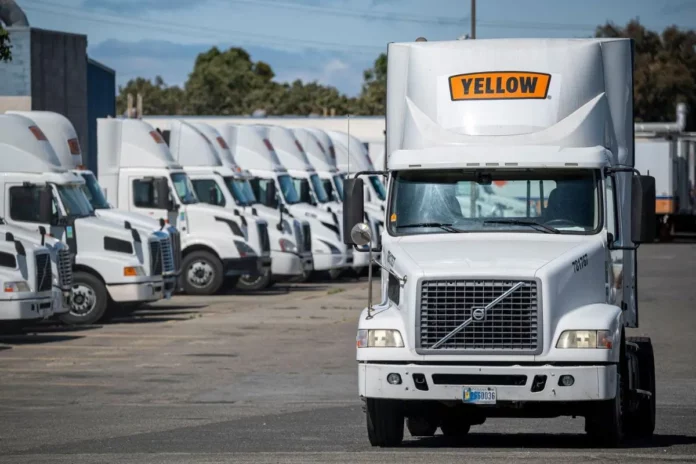Yellow Corp., a prominent trucking company in the U.S., has made the difficult decision to file for bankruptcy following years of financial hardships and increasing debt burdens. This development marks a significant shift in the nation’s transportation industry and has far-reaching implications for shippers nationwide.
Despite receiving $700 million in pandemic-era loans from the federal government three years ago, Yellow Corp. was already facing financial challenges due to what industry analysts describe as poor management and strategic decisions spanning several decades.
The Chapter 11 bankruptcy filing occurred on Sunday, revealing the company’s troubled financial state, which has been exacerbated over time.
Formerly known as YRC Worldwide Inc., Yellow Corp. ranked among the largest less-than-truckload carriers in the nation. The company, headquartered in Nashville, Tennessee, employed around 30,000 individuals across the country.
In a statement issued late Sunday, CEO Darren Hawkins expressed deep disappointment, announcing the closure of Yellow Corp. after nearly a century of operation. Throughout its long history, the company had contributed to the livelihoods of hundreds of thousands of Americans, offering stable and well-paying jobs.
With substantial accumulated debts, Yellow Corp.’s outstanding obligations amounted to approximately $1.5 billion as of late March, with $729.2 million owed to the federal government.
Also read: Genesis Files For Bankruptcy Following The Collapse of Crypto Exchange FTX
Yellow Corp. now seeks permission from the U.S. Bankruptcy Court in Delaware to make essential payments, including employee wages and benefits, taxes, and certain vendors vital to its operations.
The government loan is due in September 2024, and as of March, Yellow Corp. had made interest payments of $54.8 million and repaid only $230 million of the principal owed, according to official documents.
Analysts suggest that the financial turmoil faced by Yellow Corp. has been brewing for nearly two decades, citing poor management and strategic choices that date back to the early 2000s. The company’s repeated reliance on bailouts has reduced any appetite for further assistance from stakeholders.
Update on this news can be obtained from the source at APNews.com.

